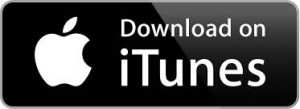
This is Podcast 41
Leadership Skills Managing Our Use of Time

 Get it on Stitcher HERE.
Get it on Stitcher HERE.
Get Hugh’s Mini-Course on the 5 Pillars of Success for only $9
 The Podcast Transcript:
The Podcast Transcript:
Points covered in this session include the following:
- Keeping yourself organized
- Writing things down
- Time wasters
- Sharing your goals
If you are committed to improving your skills as a leader, then defining a learning strategy is important to that goal. Set aside time on a regular schedule for your personal growth.
Here’s my promise to you: You will become more effective and make better use of your time as a Transformational Leader as you focus on managing yourself within the available time allowed than you ever imagined was possible.
If you are committed to improving your skills as a leader, then defining a learning strategy is important to that goal. Set aside time on a regular schedule for your personal growth.
Discipline and FOCUS
It is important to develop a discipline for learning that will take you forward toward meeting your goals and solving your problems. Part of this discipline is mental, in that you focus on the desired results. Another part is physical, in that you develop habits that will take you where you want to go.
The following is a section from my first book that I mentioned earlier:
Decide why you are doing everything you do. Is it consistent with your vision and mission statements? If you do not really know why, then don’t do it! Transform your life by eliminating unnecessary tasks!
FOCUS stands for Free Of Clutter and Unnecessary Stuff! In order to stay focused, be clear on what you want to achieve and then make sure that everything you do corresponds to one of your major goals.
Review your goals every day. Read each of your 3 goals aloud, and then construct your Daily Valuable Deliverables (DVDs) for the next day.
You will construct your vision and mission statements in Lesson 3 and learn about goals and DVDs in Lesson 4.
Journaling
The journal is an important part of your learning experience. If your life is worth living, then it is certainly worth writing about. Now, don’t get the idea that I am asking you to write a book! You are simply writing summary notes. When I attend a seminar, I don’t take notes about what the presenter is giving the audience. I make summary notes that are information resources (web URLs, books, articles, etc.) and action items. I learn by listening to the information and deciding what I will do about it. I observe people taking notes, furiously attempting to capture every nugget the presenter is giving. The important thing to me is what I am going to do as a result of the presentation.
I suggest that you write summary notes in your journal, such as key learning points, new ideas for strategies, accomplishments, DVDs (be sure to mark completed DVDs out with a heavy marker. This is satisfaction!). Some of your learning experiences and accomplishments will be small steps, as I am encouraging you to plan. Once you go back and review your progress, you will realize how far you have come each month. At the end of the 2-month program, you will be very happy to see the progress you made over those months! Do not skip this step! This is very important to your progress and total learning experience.
Wasting Time
A strong part of the skill set of the Transformational Leader is defining what you do NOT do. That is, defining what you can let go of. If you are the head of your organization, you are responsible for implementing the vision of the organization and staying on track with your financial projections and your mission. You cannot afford to get sidetracked doing things that don’t fall into these two categories.
Staying focused on these two priorities includes supervision of employees, program supervision, schedule approval, committee functions, and many other duties that manifest in a healthy organization. What gets leaders off track is getting into too much detail with delegated activities. Define what your primary duties include and define what you are not going to do.
Sharing Your Goals
Here’s the section that will set you apart from the average leaders. It’s not what you know that counts; it’s what you accomplish that counts.
After you write your time management goals in the Reflect and Apply section, share them with at least three people and schedule a time for a follow-up conversation about results. Ask them to hold you accountable in a very specific way.
Sharing goals and being accountable to several people will help you make progress. The energy that will come to you through the basic act of sharing the goal will be empowering. Here’s the real secret: the people that you share these goals with will bring energy to the goal in ways you didn’t expect and in ways that you didn’t ask about. In fact, it is important not to ask for anything from the people you share these goals with. You are simply asking them to listen and then let you follow up at a later date to be defined. There is magic in this. You will find out when you trust the system.
The major point in this exercise is to share the goal to help you stay on track. The goals for this round of goal setting are basically for you and your skill set. You will set organizational goals in Lesson 4. The intent at this point is to clarify your daily and weekly schedule and to be better at utilizing your time.
Journal the following:
Define 3 goals for taking command of your time and improving your productivity.
Identify the primary ways that you get off track and waste time.
You have defined the ways you lose time in a typical day. You know what these time robbers are; now it’s time to do something about them. Match the list above with your strategies for overcoming these obstacles.
Look at the list above and put a star or checkmark by the two items that you believe can make a difference in your daily or weekly time schedule. Write these two strategies in your journal. Later, you will need to make sure that you evaluate your daily deliverables against these time robbers.
Hugh Ballou
The Transformational Leadership Strategist TM
Subscribe to The Transformational Leadership Strategist by Email
(c) 2017 Hugh Ballou. All rights reserved




